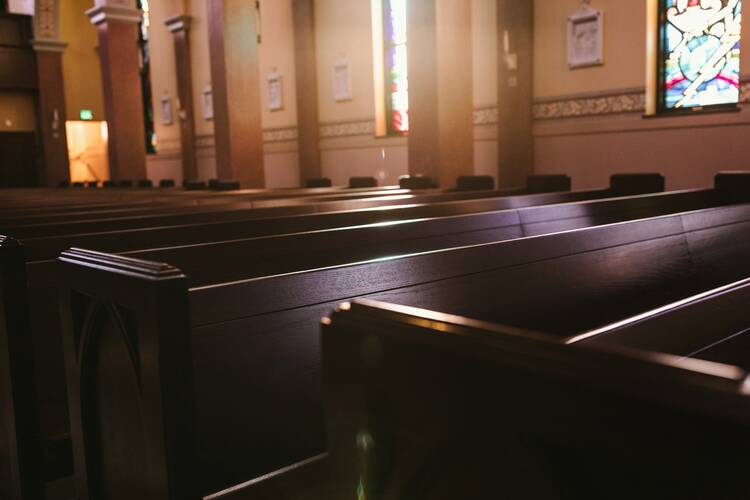A Reflection for Friday of the Eighteenth Week in Ordinary Time
You can find today’s readings here.
“For the Son of Man will come with his angels in his Father’s glory,
and then he will repay each according to his conduct.
Amen, I say to you, there are some standing here
who will not taste death
until they see the Son of Man coming in his Kingdom.” (Mt 16:27-28)
Today’s Gospel includes Scripture that would eventually be put to memorable use in Robert Bolt’s “A Man for All Seasons.” Thomas More, on trial for his life, confronts his Judas, noting Richard Rich’s recent appointment to high office in Wales: “For Wales? Why Richard, it profit a man nothing to give his soul for the whole world. . . but for Wales…”
The Gospel jointly works as a warning against the ultimate wages of sin and a reminder of a final judgment to come when the doomed and the glorified will be eternally decided. But I wonder if that final adjudication will go quite as we imagine it.
I had a conversation with a fellow Catholic, expressing some doubt that a merciful God would ever mandate an eternity in hell based on even the grave moral errors we homo sapiens were capable of on this temporal plane. He was sputtering, livid in response.
Turns out he had devoted decades of scrupulous attention to a firmly defined understanding of the Christian life. He was eager to relish the suffering of family members he had already decided were doomed, mostly because of their ridicule and rejection of his faith and the way he lived it. The thought of them receiving a get-out-of-hell free card was more than he could bear. It was a bit of a shock to see the Christian message of hope, redemption and mercy reduced to just another instrument of familial resentment and retribution.
In today’s first reading, we get a glimpse of a similar yearning for an unpleasant return for those who wrong us in the form of a prophetic warning to the people of Nineveh. The Lord depicted here is an avenger—wrathful, ready to squash the people of Nineveh in retribution for their many misdeeds.
It’s some pretty vivid and violent stuff. I imagine that Ridley Scott, the biblically minded auteur behind “Noah,” “Exodus,” “Kingdom of Heaven” and many other films, could do cinematic justice to these verses from Nahum:
The crack of the whip, the rumbling sounds of wheels;
horses a-gallop, chariots bounding,
Cavalry charging, the flame of the sword, the flash of the spear,
the many slain, the heaping corpses,
the endless bodies to stumble upon!
Woe indeed to the “bloody city.”
But we know from the same reading that the Lord is just and slow to anger. Is it just to lump the guilty and the innocent together so in such utter devastation?
A few years ago I visited, in some practical degree of fear and trembling, the ruins of the Old City of Mosul, just on the other side of the Tigris from where ancient Nineveh once stood. That district of the city, the east bank, had largely been spared both the senseless destruction of the Sunni extremists of the Islamic State and later the ruin wrought by coalition forces in the offensive to retake the city.
But as far as the eye could see from the Western bank was utter destruction—not a single home, market, shopping or apartment complex or structure of any kind had escaped a weeks-long rain of mortar, missile and tank and artillery fire. The demolished structures in the Old City, obliterated by both ISIS and the coalition, included ancient Christian churches and famous mosques that had been the marvel of Mosul before the ISIS storm across the Nineveh plains in 2014.
Nahum warned that God would tear down mighty Nineveh in its pride for the cruelty the Assyrian empire perpetrated against the Jews and across the region. Did God likewise still act so destructively in the contemporary world? Had God brought this ruin upon poor Mosul?
No, in my dismal survey that morning it was exceedingly hard to see the hand of God. Much easier to accept that the brute cruelty of humankind had created the annihilated landscape before me. The common people of Mosul were, with some exceptions, the innocent victims of both ISIS in 2014 and Mosul’s liberation in 2017—a firestorm of the 21st century not unlike the desolation visited upon the Assyrians in the sixth century before Christ.
Before assigning divine responsibility to such events, it is fitting that we first confront what we, through the gift of free will, are capable of undertaking ourselves. God’s ways are not our ways, though we sometimes imagine, even hope, them to be. Better to let judgment and eternity remain the domain of the divine benevolence than to try to confine them to our meager philosophy.








